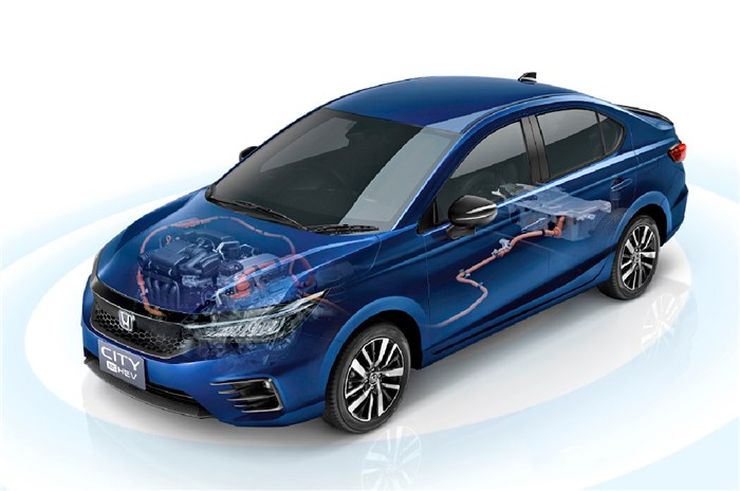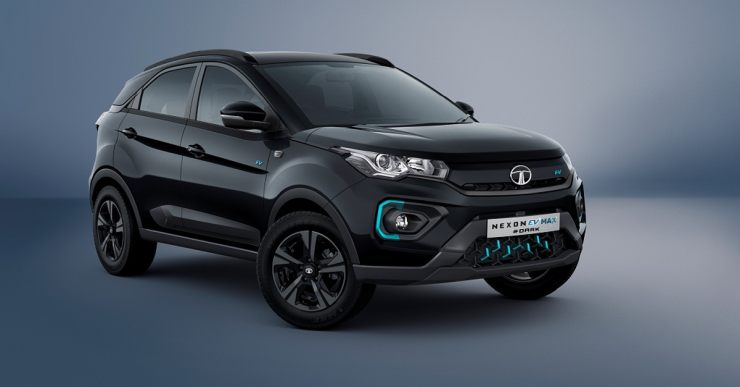Electric cars pollute more than petrol, diesel and hybrid cars
It is no longer a secret that the government of India, along with most governments worldwide, has been advocating for electric mobility as the next big thing toward a sustainable, clean, and green future. World leaders have propagated that electric vehicles (EVs) are the cleanest and the future. However, a recent study conducted by the Indian Institute of Technology (IIT) Kanpur has revealed that this may not be entirely true. The study reports that electric cars are not the most eco-friendly option when compared to hybrid electric vehicles and internal combustion vehicles.
In collaboration with a Japanese organization, IIT Kanpur performed a study on electric, hybrid, and conventional vehicles. The study aimed to determine the Life Cycle Analysis (LCA) and Total Cost of Ownership (TCO) of these vehicles. The research classified automobiles into three groups: two international categories and one Indian category.
Also read: 10 DC Design cars & how they look in the REAL world: Maruti Swift to Mahindra XUV500
According to the study, it has been discovered that electric cars produce 15-50 percent more Greenhouse Gases (GHGs) throughout their lifecycle, including manufacturing, usage, and scrappage, when compared to hybrid and internal combustion vehicles. Furthermore, the study also reported that the cost of purchasing, insuring, and maintaining EVs is 15-60% higher when calculated per kilometer. The study concludes that hybrid electric vehicles are the most environmentally beneficial option.
The study identifies one of the main reasons behind electric cars producing more GHGs as the current scenario in India, where 75 percent of electricity is generated from coal sources, a major GHG producer. Electric cars rely on this source of energy for charging their batteries. Additionally, the study highlights that over the lifetime of the vehicle, the cost of buying, using, and maintaining electric cars is 15-60 percent higher per kilometer compared to hybrid and conventional cars.
If not electric then which category of cars is better?
IIT Kanpur’s research determines that among the three categories of cars available in the country, hybrid electric cars are the most environmentally friendly. Hybrids emit the least amount of GHGs throughout their lifetime and should be the preferred choice. However, the study also notes that the government imposes the highest taxes on this particular category of car.

The study suggests that while the government currently provides rebates on electric vehicles to promote them as the most environmentally friendly option, if the government truly prioritizes the environment, it should reduce taxes on hybrid vehicles and put them on par with electric vehicles. According to the study, despite their impact on the environment, battery electric vehicles are being marketed through cheaper taxes and other customer perks. Hybrids, compared to conventional engine vehicles, achieve one-and-a-half to double the mileage per liter.
In conclusion, Professor Avinash Aggarwal from IIT Kanpur states that for personal usage, a car with a traditional engine is less expensive than a battery-powered automobile. However, for taxi drivers, a battery-powered vehicle is more efficient. While hybrid vehicles are the most environmentally friendly option.
Also read: Upcoming 2022 Maruti Suzuki Vitara Brezza rendered
It is no longer a secret that the government of India, along with most governments worldwide, has been advocating for electric mobility as the next big thing toward a sustainable, clean, and green future. World leaders have propagated that electric vehicles (EVs) are the cleanest and the future. However, a recent study conducted by the Indian Institute of Technology (IIT) Kanpur has revealed that this may not be entirely true. The study reports that electric cars are not the most eco-friendly option when compared to hybrid electric vehicles and internal combustion vehicles.

In collaboration with a Japanese organization, IIT Kanpur performed a study on electric, hybrid, and conventional vehicles. The study aimed to determine the Life Cycle Analysis (LCA) and Total Cost of Ownership (TCO) of these vehicles. The research classified automobiles into three groups: two international categories and one Indian category.
Also read: 10 DC Design cars & how they look in the REAL world: Maruti Swift to Mahindra XUV500
According to the study, it has been discovered that electric cars produce 15-50 percent more Greenhouse Gases (GHGs) throughout their lifecycle, including manufacturing, usage, and scrappage, when compared to hybrid and internal combustion vehicles. Furthermore, the study also reported that the cost of purchasing, insuring, and maintaining EVs is 15-60% higher when calculated per kilometer. The study concludes that hybrid electric vehicles are the most environmentally beneficial option.
The study identifies one of the main reasons behind electric cars producing more GHGs as the current scenario in India, where 75 percent of electricity is generated from coal sources, a major GHG producer. Electric cars rely on this source of energy for charging their batteries. Additionally, the study highlights that over the lifetime of the vehicle, the cost of buying, using, and maintaining electric cars is 15-60 percent higher per kilometer compared to hybrid and conventional cars.
If not electric then which category of cars is better?
IIT Kanpur’s research determines that among the three categories of cars available in the country, hybrid electric cars are the most environmentally friendly. Hybrids emit the least amount of GHGs throughout their lifetime and should be the preferred choice. However, the study also notes that the government imposes the highest taxes on this particular category of car.

The study suggests that while the government currently provides rebates on electric vehicles to promote them as the most environmentally friendly option, if the government truly prioritizes the environment, it should reduce taxes on hybrid vehicles and put them on par with electric vehicles. According to the study, despite their impact on the environment, battery electric vehicles are being marketed through cheaper taxes and other customer perks. Hybrids, compared to conventional engine vehicles, achieve one-and-a-half to double the mileage per liter.
In conclusion, Professor Avinash Aggarwal from IIT Kanpur states that for personal usage, a car with a traditional engine is less expensive than a battery-powered automobile. However, for taxi drivers, a battery-powered vehicle is more efficient. While hybrid vehicles are the most environmentally friendly option.
Also read: Upcoming 2022 Maruti Suzuki Vitara Brezza rendered
